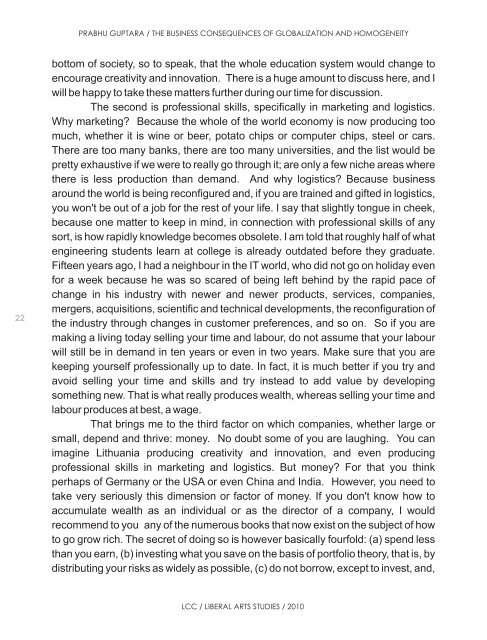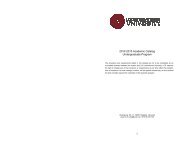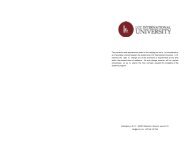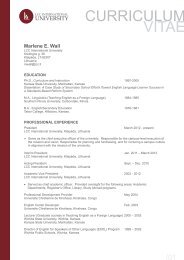lcc liberal arts studies / 2010 volume iii - LCC International University
lcc liberal arts studies / 2010 volume iii - LCC International University
lcc liberal arts studies / 2010 volume iii - LCC International University
You also want an ePaper? Increase the reach of your titles
YUMPU automatically turns print PDFs into web optimized ePapers that Google loves.
22<br />
PRABHU GUPTARA / THE BUSINESS CONSEQUENCES OF GLOBALIZATION AND HOMOGENEITY<br />
bottom of society, so to speak, that the whole education system would change to<br />
encourage creativity and innovation. There is a huge amount to discuss here, and I<br />
will be happy to take these matters further during our time for discussion.<br />
The second is professional skills, specifically in marketing and logistics.<br />
Why marketing? Because the whole of the world economy is now producing too<br />
much, whether it is wine or beer, potato chips or computer chips, steel or cars.<br />
There are too many banks, there are too many universities, and the list would be<br />
pretty exhaustive if we were to really go through it; are only a few niche areas where<br />
there is less production than demand. And why logistics? Because business<br />
around the world is being reconfigured and, if you are trained and gifted in logistics,<br />
you won't be out of a job for the rest of your life. I say that slightly tongue in cheek,<br />
because one matter to keep in mind, in connection with professional skills of any<br />
sort, is how rapidly knowledge becomes obsolete. I am told that roughly half of what<br />
engineering students learn at college is already outdated before they graduate.<br />
Fifteen years ago, I had a neighbour in the IT world, who did not go on holiday even<br />
for a week because he was so scared of being left behind by the rapid pace of<br />
change in his industry with newer and newer products, services, companies,<br />
mergers, acquisitions, scientific and technical developments, the reconfiguration of<br />
the industry through changes in customer preferences, and so on. So if you are<br />
making a living today selling your time and labour, do not assume that your labour<br />
will still be in demand in ten years or even in two years. Make sure that you are<br />
keeping yourself professionally up to date. In fact, it is much better if you try and<br />
avoid selling your time and skills and try instead to add value by developing<br />
something new. That is what really produces wealth, whereas selling your time and<br />
labour produces at best, a wage.<br />
That brings me to the third factor on which companies, whether large or<br />
small, depend and thrive: money. No doubt some of you are laughing. You can<br />
imagine Lithuania producing creativity and innovation, and even producing<br />
professional skills in marketing and logistics. But money? For that you think<br />
perhaps of Germany or the USA or even China and India. However, you need to<br />
take very seriously this dimension or factor of money. If you don't know how to<br />
accumulate wealth as an individual or as the director of a company, I would<br />
recommend to you any of the numerous books that now exist on the subject of how<br />
to go grow rich. The secret of doing so is however basically fourfold: (a) spend less<br />
than you earn, (b) investing what you save on the basis of portfolio theory, that is, by<br />
distributing your risks as widely as possible, (c) do not borrow, except to invest, and,<br />
<strong>LCC</strong> / LIBERAL ARTS STUDIES / <strong>2010</strong>






